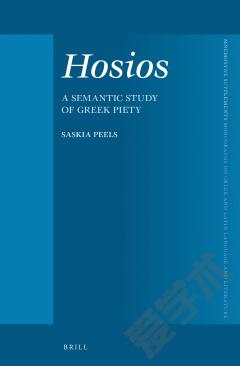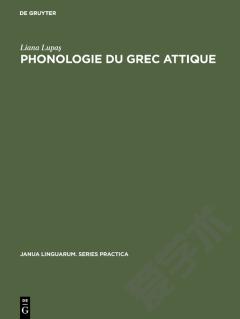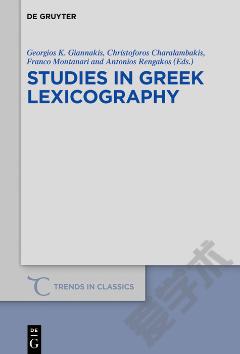Hosios —— A Semantic Study of Greek Piety
----- HOSIOS -希腊虔诚的语义研究
The goal of this thesis is to understand the meaning and usage of the Ancient Greek lexeme hosios and its cognates in the period from Homer until the end of the 5th century B.C. The adjective hosios was an evaluation relating to what humans must do to please the gods; it is often translated as âpiousâ. The study of the semantics and pragmatics of these terms has been surrounded by controversies: hosios & cognates have been considered semantically opaque and extremely polysemous. I chose a cognitive semantic framework, an approach in which the âmeaningâ of a lexeme in the mental lexicon consists of a structured inventory of usages, and includes an awareness of associated cultural framework(s). A second starting point of the analysis was the insight in linguistic literature that lexical selection is competitive: a language user always chooses a lexeme after (unconsciously) considering alternatives. We studied the meaning of hosios & cognates by examining the competition between these terms and near-synonymous semantic ârivalsâ. Chapter 2 provides a preliminary analysis of the meaning of hosios, showing its distribution, the internal structure of its semantic network and associated frames. The principle of competition was central in Chapters 3-6. A constrastive pair is analyzed in Chapter 3 (hosios vs. eusebes âpiousâ), Chapter 4 (hosios vs. dikaios âjustâ) and Chapter 6 (hosios vs. 0). I studied the circumstances under which hosios was selected over these lexical competitors (Ch. 3-4) or instead of no evaluation (Ch. 6). Chapter 5 considers cases in which hosios appears unexpectedly in defiance of seemingly obvious and better-fitting lexical alternatives. On the basis the analyses in Chapters 2-6 it became possible to address a long-standing scholarly problem in Chapter 7. This is the supposition that hosios & cognates can assume two opposite meanings, referring to the âsacredâ and to the âprofaneâ. I argue that there is no such semantic paradox. My conclusion is twofold. First, the semantics of hosios & cognates are straightforward. These terms are not more âpolysemousâ than other typical evaluative terms. The attested occurrences of these lexemes can be well understood if we take as a starting point a small amount of prototypical usages in a focused semantic network. á½ ÏÎ¹Î¿Ï is what humans do to please the gods and gives them the time (âhonourâ) they deserve, or anything of which the speaker can convince others that it belongs to that category. All seemingly different cases were explained as cases of framing, or as marked language usage, on-the-spot (poetic) inventions with an intended effect. Moreover, I hope to have shown that isolating a short period in time and then analysing the usage of a lexeme in its semantic field is informative and productive. When studying the semantics and usage of evaluative terms in a dead language, we should ask in which semantic/pragmatic situations the studied lexeme wins synchronically over its near-synonymous lexical rivals, and why these competitors are selected in other occasions. A diachronic study should be the accumulation of case studies of individual time-periods.
{{comment.content}}








 京公网安备 11010802027623号
京公网安备 11010802027623号